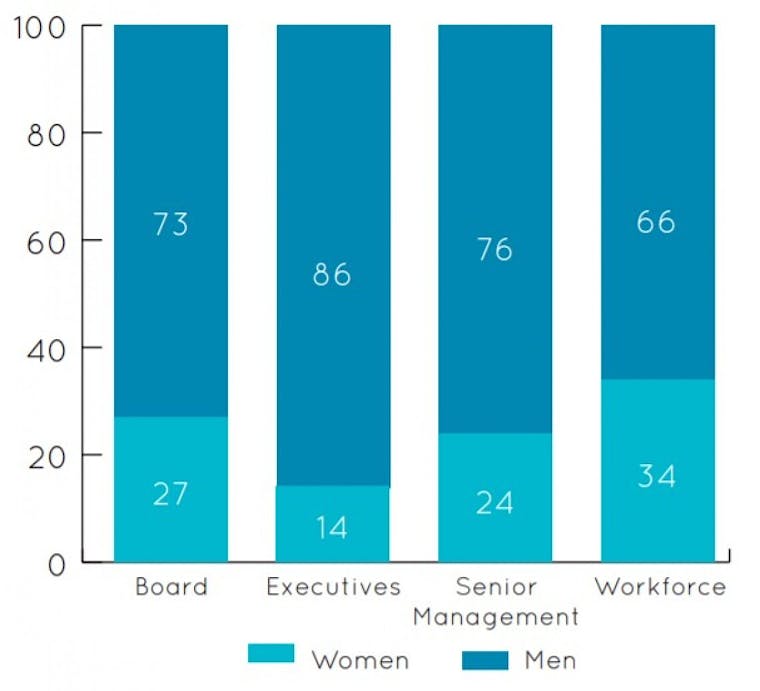More CEOs Are Called Peter Than There Are Female CEOs

Gender equality is far away. Equileap's equality report shows we're not even close to where we should be. How embarrassing, especially in a 'progressive' country like the Netherlands where, today, more CEOs are called Peter than there are female CEOs.
Gender equality
The fact of gender inequality in the workplace isn't new. But every report showing the specifics and the facts hurts.
A new report from Equileap triggers that painful feeling again. They assessed 100 leading Dutch firms on workplace equality. This includes companies like Unilever, Shell, ING Group, Heineken, Philips, Ahold Delhaize, DSM and Randstad.
Here's what they found.
Women at various levels
Women are underrepresented at all levels, but especially in executive teams, where a mere 14% are female. Over half (51) of the companies don't have a single woman at this level.
Globally, the situation is not much better. Only 10% of companies have gender-balanced boards and 6% have gender-balanced executive teams.
Here are the data for various levels:

The senior management level is strongly male-dominated. Only 3% of the companies have gender balance (between 40-60% of each gender).
Secrecy all around
In an earlier post (Equal Work = Equal Pay (NOT!)), we described how one company addressed this by being transparent about it. While that narrowed the gap, few companies have dared follow suit.
88% of Dutch companies do not publish gender-segregated pay information. They prefer to keep such painful secrets locked away inside corporate walls. In fact, 99 out of the 100 companies in the dataset have not published any strategy to close the gender pay gap.
Moreover, 21% of the companies do not publish gender diversity figures. Secrecy or indifference seem to be the norm on this touchy subject.

More Peters than women
And then there's our headline fact. More CEOs are called Peter (five) than there are female CEOs (four). While Peter might be a common name in the Netherlands, it's definitely not THAT common!
Emotions over rationality
Most agree this shouldn't be part of today’s world. It doesn't belong any more. While that reflects the shared feeling, it doesn’t reflect the reality!
In the end, we continue to accept this antiquated practice.
And yes, we stress again that diversity leads to better performance. More diverse boards have greater returns and lower risk profiles. Increased participation of women at all levels leads to better company performance and higher growth.
But that's all about rationality. Some leaders might be persuaded to pursue equality because it's better for business, and therefore increases their pay check. But shouldn't this be more about emotion and values?
Would change occur more swiftly and more profoundly if it came from a place of love? Because it's the right thing to do? And because leaders and companies want to have a positive impact on the world?
I believe that's what’s needed to change. We need leaders motivated, encouraged and evaluated on how they contribute to doing good: and to the extent they use position and power to tip the scales in favor of goodness.
While that might sound naïve, I believe it's the right way. All of us can contribute by electing, engaging, rewarding, and promoting those leaders and businesses who believe in that too—and for calling out those that don't.
I'm curious to hear your thoughts.



